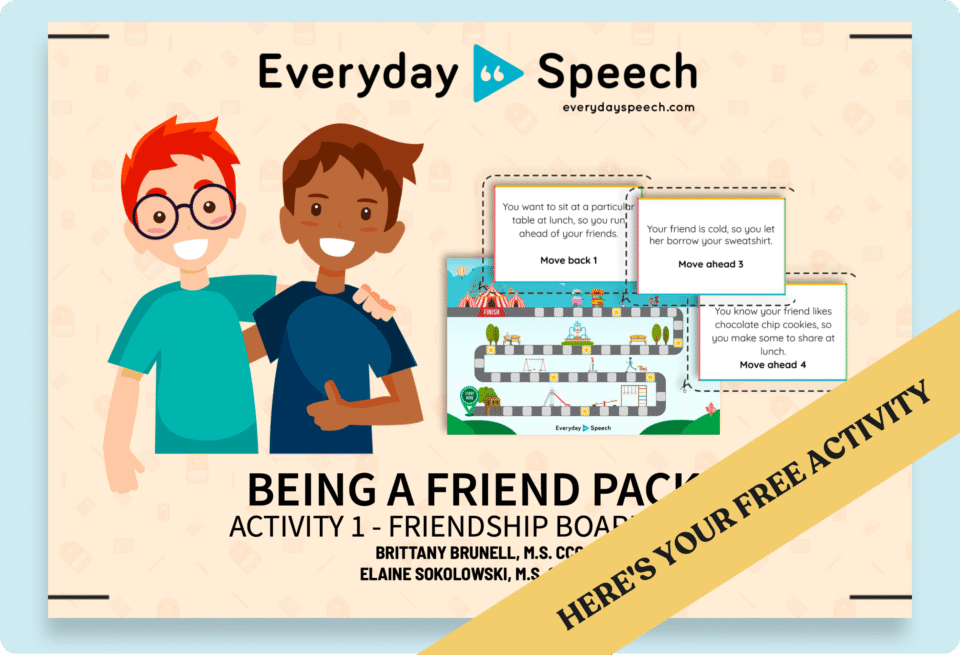Free Identifying Feelings Lesson Plan
Get free social skills materials
No-prep lessons on self-regulation, emotional recognition, conversation skills, and more.
Sign up hereUse our free identifying feelings lesson plan laid out in the post below to teach your elementary students how to recognize and label feelings. Download the free goal poster above for a great visual aid.
What You’ll Teach
Identifying Feelings aims to help learners identify and label their own feelings and the feelings of others by fine-tuning their interpretation of facial expressions. Children will learn to read the “big three” clues; the eyes, eyebrows, and mouth, in order to tell how someone is feeling.
FREE Identifying Feelings Lesson Plan
1. Talk About Our Feelings
It’s best to begin an introductory lesson with the concept that we all have feelings and they can change all day long. How you feel might be different from how someone else is feeling and that is okay! Our Identifying Feelings PDF goal poster is a helpful resource to hang in your classroom or office as a reminder!
2. Introduce “The Big Three”
The Big Three is an Everyday Speech concept that teaches children how to notice the three main facial features that tell us the most about emotions. These are the eyes, eyebrows, and mouth. When eyes are raised, narrowed, or bigger it can mean someone feels surprised, angry, or excited. Eyebrows can move up or down depending on how someone feels. Lastly, our mouths can be smiling, frowning, straight, or a number of different positions. Teach students to watch and recognize the Big Three for clues.
3. Role-Play Different Feelings
Go around the room and ask students to take turns acting out different feelings. The rest of the group can use The Big 3 to notice and guess how each one feels!
Sample Video
Students learn best from watching real students their own age model skills. Try out this sample video-modeling lesson below. We offer our entire Social-Emotional Learning platform free for 30 days here!
Related Blog Posts:
Free Identifying Feelings Material
Lesson Plan: Identifying Feelings


